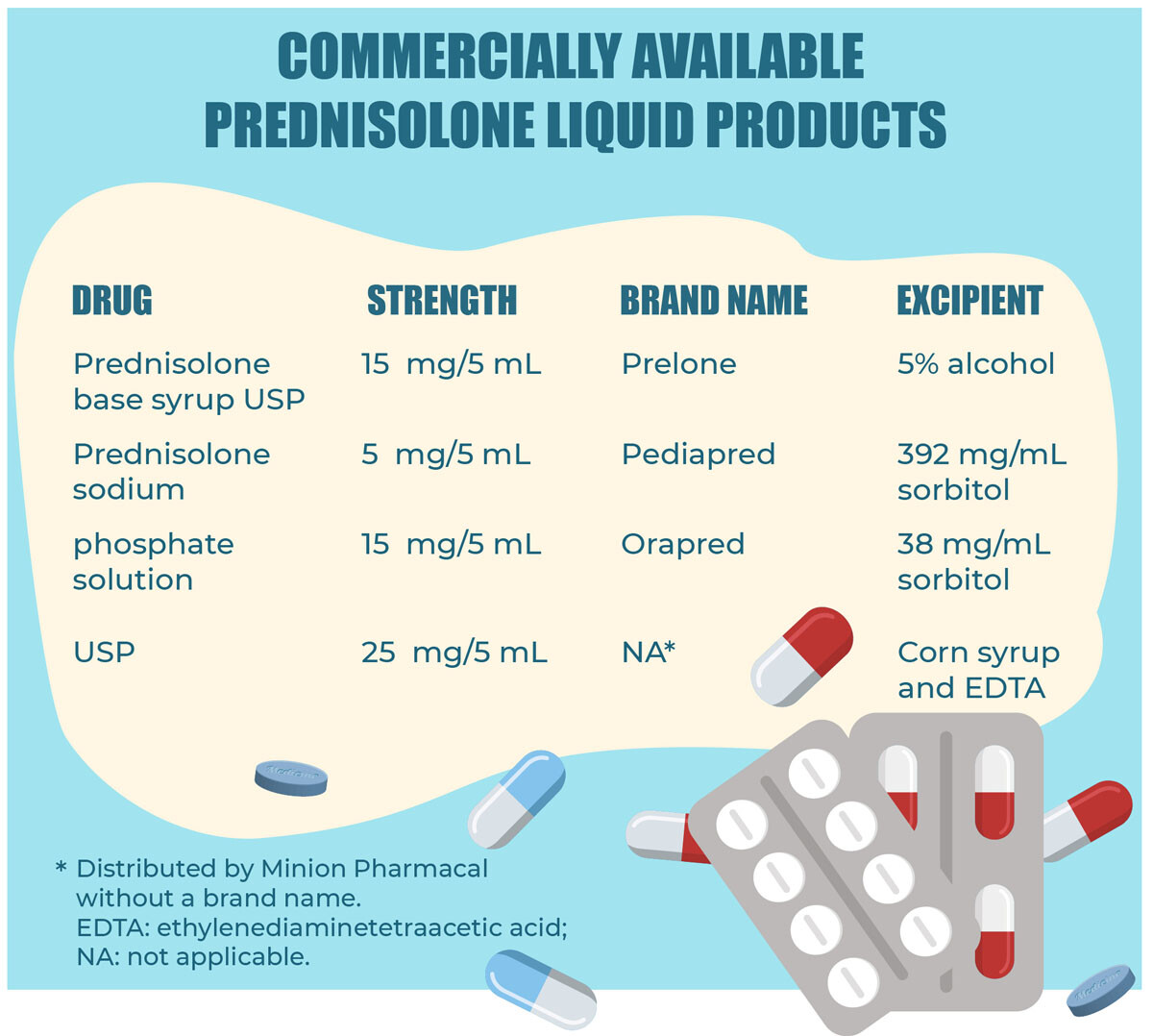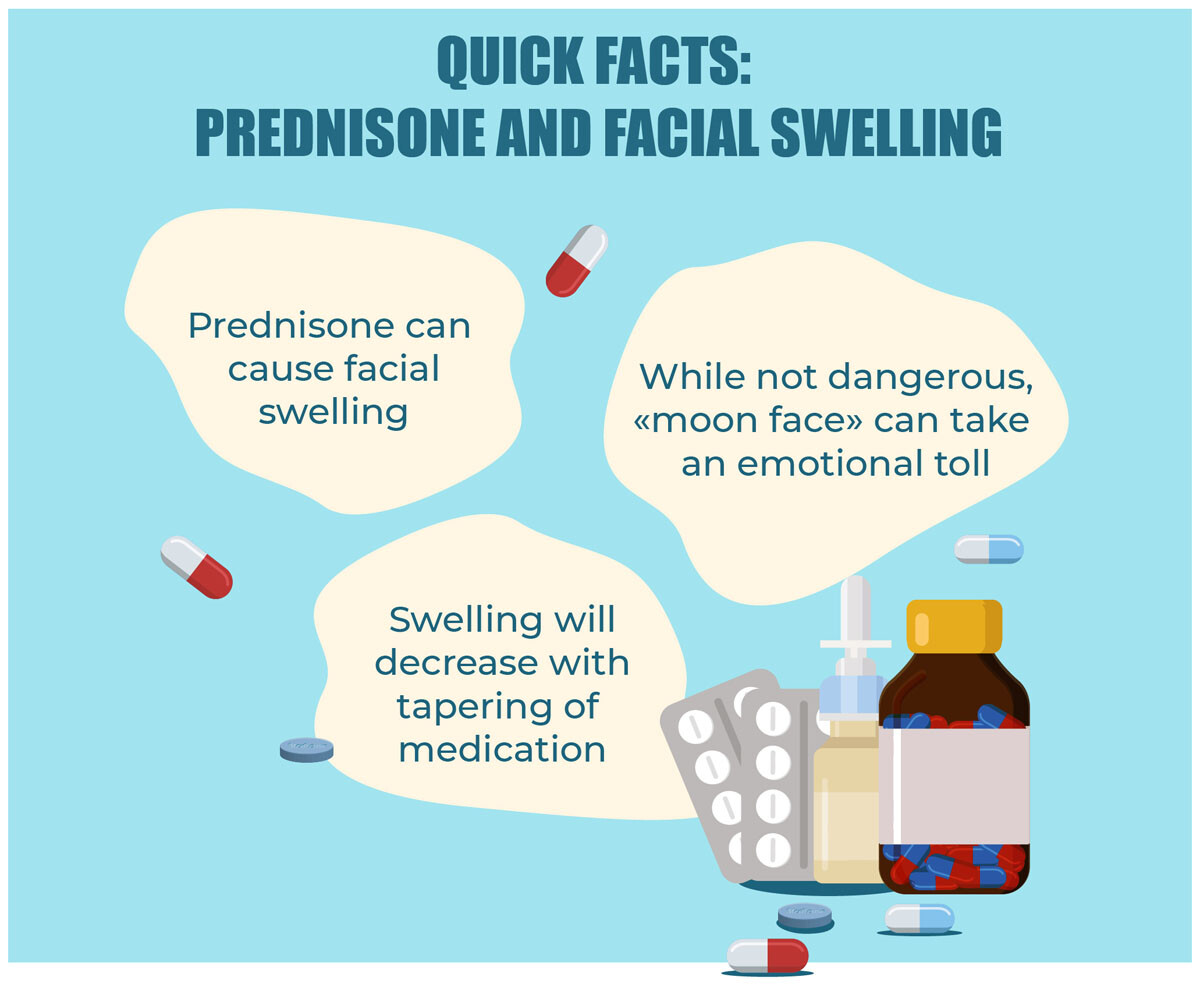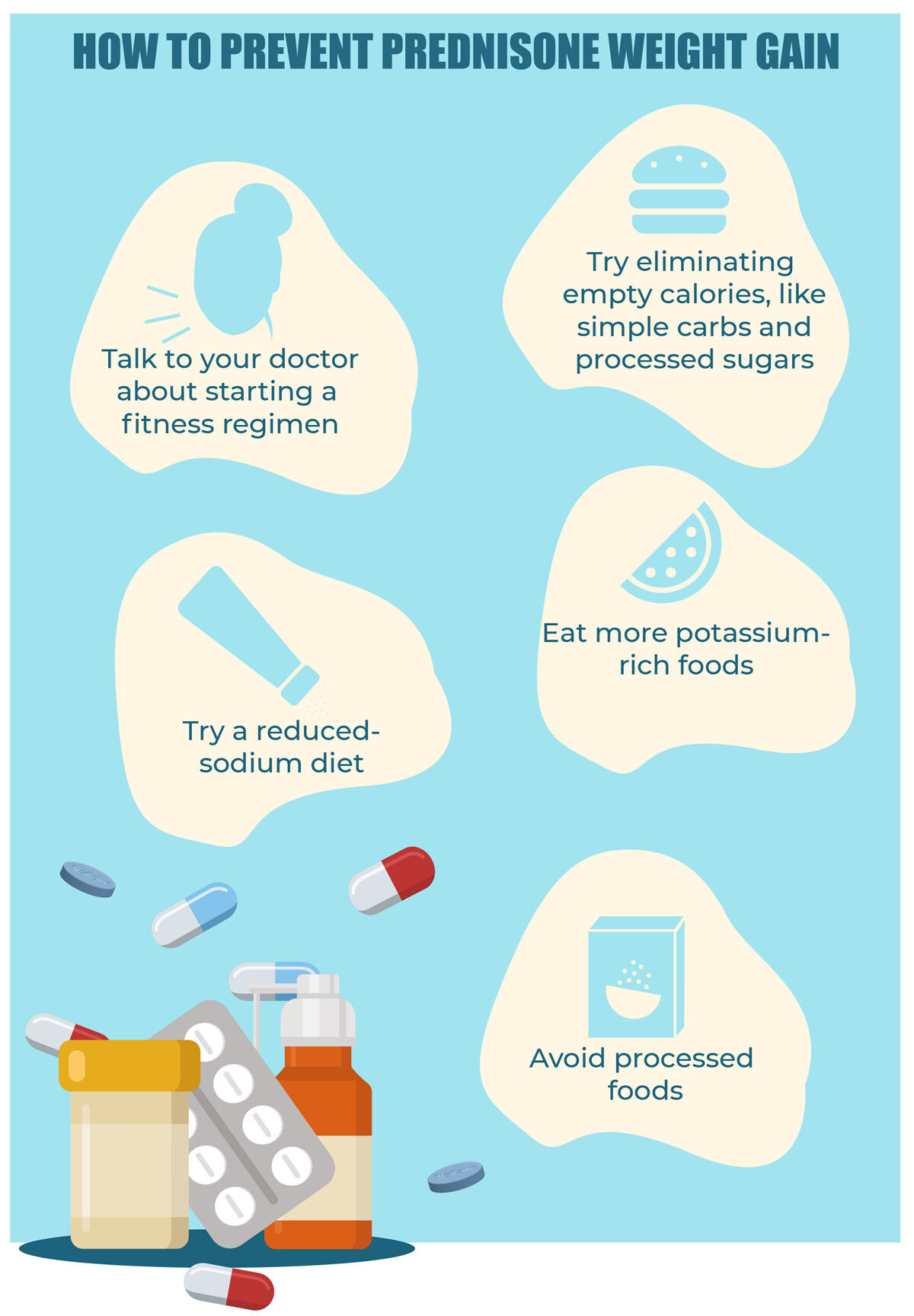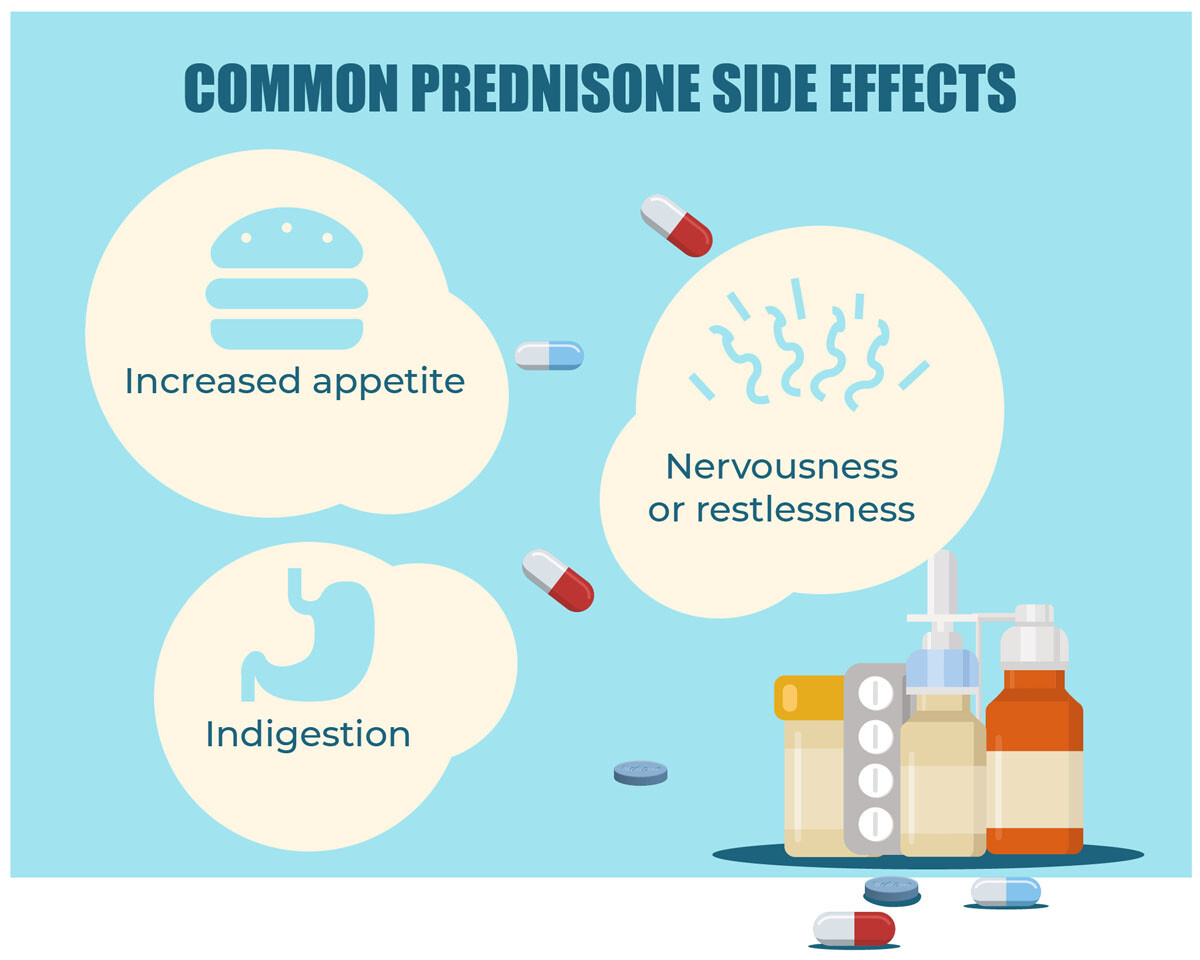Prednisolone











Dosages
Prednisolone 5 mg
| Quantity | Price per pill | Total price | |
|---|---|---|---|
| 10 | $4.00 | $40.00 | |
| 20 | $2.25 | $45.00 | |
| 30 | $1.67 | $50.00 | |
| 60 | $0.92 | $55.00 | |
| 90 | $0.67 | $60.00 | |
| 120 | $0.58 | $70.00 | |
| 180 | $0.50 | $90.00 | |
| 270 | $0.37 | $100.00 | |
| 360 | $0.32 | $115.00 |
Prednisolone 10 mg
| Quantity | Price per pill | Total price | |
|---|---|---|---|
| 10 | $4.50 | $45.00 | |
| 20 | $2.50 | $50.00 | |
| 30 | $1.83 | $55.00 | |
| 60 | $1.00 | $60.00 | |
| 90 | $0.78 | $70.00 | |
| 120 | $0.71 | $85.00 | |
| 180 | $0.61 | $110.00 | |
| 270 | $0.56 | $150.00 | |
| 360 | $0.47 | $170.00 |
Prednisolone 20 mg
| Quantity | Price per pill | Total price | |
|---|---|---|---|
| 10 | $5.00 | $50.00 | |
| 20 | $2.75 | $55.00 | |
| 30 | $2.00 | $60.00 | |
| 60 | $1.08 | $65.00 | |
| 90 | $1.00 | $90.00 | |
| 120 | $0.83 | $100.00 | |
| 180 | $0.72 | $130.00 | |
| 270 | $0.59 | $160.00 | |
| 360 | $0.49 | $175.00 |
Prednisolone 40 mg
| Quantity | Price per pill | Total price | |
|---|---|---|---|
| 10 | $6.00 | $60.00 | |
| 20 | $3.25 | $65.00 | |
| 30 | $2.33 | $70.00 | |
| 60 | $1.33 | $80.00 | |
| 90 | $1.11 | $100.00 | |
| 120 | $1.00 | $120.00 | |
| 180 | $0.83 | $150.00 | |
| 270 | $0.65 | $175.00 | |
| 360 | $0.58 | $210.00 |
Payment & Shipping
Your order is securely packed and usually ships within 24 hours. Below is what a standard package looks like.
It is about the size of a regular letter (9.4x4.3x0.3 inches) and shows no details about what is inside.



| Shipping Method | Estimated delivery |
|---|---|
| Express Free for orders over $300.00 | Estimated delivery to the U.S.: 4-7 days |
| Standard Free for orders over $200.00 | Estimated delivery to the U.S.: 14-21 days |









Discount Coupons
- Independence Day - July 4, 2026 10% JULY410
- Labor Day - September 7, 2026 7% LABOR07
- Thanksgiving - November 26, 2026 9% THANKS09
FAQ
Description
NDC: 42708-114(0591-5052)
Prednisolone is a synthetic oral medication that resembles cortisol in its action. The only difference is that cortisol occurs naturally in the body, and Prednisolone is an artificial substance. On the one hand, medicine is meant to suppress the immune system. On the other hand, it reduces inflammation connected with conditions such as Crohn's disease, asthma, psoriasis, and even leukemia.
The human adrenal gland is known to produce the corticosteroid hormone involved in many physiological processes. When patients have problems producing this hormone, they are prescribed Prednisolone to ensure that all the processes that require this hormone run well. In a nutshell, the medicine is used to treat complicated medical conditions such as arthritis, bronchitis, diseases of the eyes and skin, different allergies, blood problems (anemia), and immune system disorders, especially autoimmune diseases.
What Is Prelone?
As someone prescribed Prelone, you might wonder, 'What is the medicine Prednisolone?' and 'How does this drug work?' Answering the question, 'What is Prednisolone generally used for?', it is necessary to mention its nature. In a narrower sense, Prednisolone is a prescription steroid drug coming in the form of tablets. There are either immediate-release tablets and delayed-release tablets or a liquid form.
How Does It Work?
Prednisolone is the agent that weakens a person's immune system's response to reduce inflammation in certain parts of the body or its systems. Like other corticosteroids, the hormone has powerful anti-inflammatory effects. The medicine shows promising results when dealing with illnesses that strongly depend on the immune system. To be more precise, Prednisolone is the active metabolite of the substance called Prednisone, causing the inhibition of the chemicals that drive inflammation. The substance is first metabolized in the liver and later can enter cellular membranes. Because this drug has a high similarity with cytoplasmic receptors, it can decrease the synthesis of protein, at the same time inhibiting leukocyte infiltration.
Is It Safe?
Since this drug aims to make your immune system less active, it will significantly lower your body's ability to fight infections and viruses. So, you need to understand how careful you must be when you take it as prescribed by the doctor. At this time, any infection can lead to fatality. This is another reason to be as honest with your doctor as possible concerning any symptoms of infection disease - sneezing, coughing, fever, sore throat, etc. Besides, lasting therapy results in atrophy of the adrenal glands and the complete stop of the body's cortisol production.
What Is Prelone Used For?
Diseases and medical conditions treated or reduced by the drug include a whole list of serious illnesses. Among the most frequent reasons for taking Prelone are the following:
- asthma;
- ulcerative colitis;
- autoimmune hemolytic anemia;
- lymphomas;
- eye ulcer;
- bronchitis;
- dermatitis of different types;
- systemic lupus;
- allergies;
- disorders of the endocrine system;
- bursitis of joints;
- nephrotic syndrome;
- optic neuritis.
The effect of Prelone can be compared to the effects of other corticosteroid drugs for the same implications, such as Kenacort, Medrol, or Decadron. The medicine is famous under several brand names and was approved by the US Food and Drug Administration in 1995. It is successfully used to treat the conditions mentioned above, with exceptions for patients with a few other diseases. Prednisolone is available as a syrup, usually 5 mg, in variations with different strengths, as can be seen in the chart below.

Lupus
Systemic Lupus Erythematosus, or SLE, commonly known as lupus, is a chronic autoimmune disease characterized by producing harmful antibodies in the blood. The condition is supposed to develop due to specific drug intake, viruses, and, perhaps, heredity. Contemporary medicine has found out how to control this condition with the help of Prednisolone and other medications, such as cytotoxic drugs for more complicated cases of SLE.
Asthma
This lung disorder also develops due to chronic lung inflammation, breathing difficulty, coughing, and tightness. However, with the elimination of the main asthma triggers, spasms in the bronchi, and chronic inflammation, asthma can be controlled. Corticosteroids, in this case, are mainly used as inhaled medicines.
Rashes
Systemic corticosteroids like Prelone, either in the form of tablets or injections, effectively treat skin diseases and rashes. Still, the medication intake must be discussed with the doctor first.
Certain Types Of Arthritis
Rheumatoid arthritis is one of many autoimmune diseases curable with the drug. In addition, the uses of tablets of Prednisolone are also highly productive for gout and psoriatic arthritis regardless of the number of joints that require treatment.
What Do I Need to Tell My Doctor Before I Take Prelone
The first thing to immediately tell your doctor is if you are allergic to any tablet or syrup component. Being allergic to Prednisolone will exclude the possibility of therapy and make your physician seek other ways to overcome the disease. Secondly, inform the doctor about any other food or substance you don't tolerate and the common symptoms. Thorough screening of liver and eye nerves and checking for any eye problems is also compulsory, so make sure you tell the doctor about any slightest discomfort if there is such.
Another important aspect to discuss with the professional includes other medicines you've been taking, herbal medications, and vitamin supplements.
How to Use This Medicine
The intake of this medicine in syrup should be individualized and adjusted to the severity of a patient's condition and the response to treatment. Each teaspoon of the cherry-flavored syrup contains 15mg of Prednisolone. The medication comes with a leaflet, so it is vital to read it first and consult your doctor if you have any doubts. The suspension should be measured; however, not with an average teaspoon but with a syringe that comes in the pack to avoid mistakes in the dosage. The medicine should be stored in the original container at room temperature, away from severe heat, extra moisture, and direct sun rays. It also mustn't be frozen.
Prelone is often allowed to be taken with food to avoid stomach irritation, especially at the initial stages of treatment. Dosage requirements are highly variable and must be kept under the careful observation of the doctor since the overdose is especially hazardous. If you were prescribed a long course of treatment, make sure your medical checkups are regular and no undesirable effects appear.
Dosage
As mentioned above, every dose should differ for every individual depending on their disease type, progress, and individual reaction. Therefore, the following data includes only the average doses of this medicine and cannot be used as an instruction to action.
The amount of syrup or tablets to take depends on several key factors-the strength of the drug and the frequency of taking it. Generally, the oral Prednisolone dosage for adults (syrup, tablets, suspension) varies from 5 to 60 mg daily.
Prednisolone dosage for asthma, for instance, includes 50 to 100 mg of Prednisolone a day (taken for 5-10 days) for adults. This dosage in medical practice shows maximum efficacy. Regarding the dosage of Prednisolone for kids 2 to 15 years old, three to five full days of the treatment are assigned with 1 mg per kilogram of body weight.
How It Should Be Taken
Experts in treating various diseases with Prednisolone claim that it's best to take it as a single dose once a day, ideally after breakfast. This is the perfect time for taking the full dose. Taking it in the morning won't affect your sleep, leading to insomnia, and will not likely upset your stomach. Most of the medications containing Prednisolone are not labeled as 'gastro-resistant,' which means they could have irritating effects on your stomach. If extra sensitivity to the drug is spotted, make sure you choose the 'gastro-resistant' tablets that can otherwise be named 'enteric-coated.'
Precautions
There are certain categories of people who are not allowed to take medicine:
- Those having infections or recovering from them.
- Those who are trying to get pregnant, are already pregnant or plan to breastfeed.
- People who were in contact with carriers of measles, chickenpox, or shingles.
- Those having done vaccination recently.
- People with severe liver problems.
Conditions such as epilepsy, depression, heart failure, or a recently experienced heart attack, diabetes, and high blood pressure might also be valid reasons for your doctor not to let you take the medication since side effects are not easily predicted in these cases.
What Do I Do If I Miss a Dose
Just like with any other medication of similar purpose and type, a missed dose of Prelone should be taken as soon as a patient remembers to do it (on the same day). If the dosage for that day is missed, do not try to take a double dosage to catch up. Just skip the missed dose and keep up with the scheduled intake.
Drug Interactions and Warnings
Prednisolone interacts with several medications and substances, so all drugs taken simultaneously with Prelone should be discussed with the health professional. The especially hazardous effects are observed in the combination of Prednisolone with drugs like Aricept, Exelon, and Razadyne (as a part of anticholinesterase therapy). In addition, injections of medical supplements like Ambisome can increase the risks of a heart attack. Other medicines don't pose serious threats but make Prednisolone ineffective - this category contains the popular Coumadin and many antibiotics.
What Happens If I Overdose
An accidental overdose is not supposed to damage your health seriously. However, continuous and long-term intake of the increased dose might result in thinning skin and acne, easy bruising, blood vessels becoming very fragile, issues with the menstrual cycle, and impotence.
Can You Use Prelone During Pregnancy
The drug has not been tested on pregnant women, which is why medicine lacks evidence concerning drug intake at this period. That is why Prednisolone is usually not advised to be used during pregnancy until certain health benefits seriously outweigh the dangers.
Occasional intake of Prednisolone is linked to hazards for the baby in the first 12 weeks of pregnancy. After that, however, the prolonged use of Prelone holds more threats for an unborn kid. If you are concerned about the dosage of Prednisolone during your pregnancy or lactation or want to ensure that the benefits outweigh the minuses in your situation, consult your doctor and read the information on the Best Use of Medicines in Pregnancy (BUMPs).
Prelone Side Effects
Usually, doses under 20 mg daily don't cause strong side effects. Still, some patients may experience unwanted side effects when they take it longer than 14 days.
Sever Prelone Side Effects Include the Following:
- Being breathless, troubled breathing, and talking.
- Fever and chill.
- Increased production of saliva or its unusual color.
- Wounds and mouth sores that heal slowly.
- Weight gain, especially in the upper part of the back and tummy.
- Vomiting, dizziness, passing out, and bad headaches.
- Radical vision changes.
- Severe back pain and stomach pain.
- A heartbeat that does not feel healthy.
Research in 2018 concerning the side effects of Prelone for treating asthma revealed many other adverse reactions.
More Common Side Effects
If the dosage you were prescribed is safe and you follow it, there still could be slight side effects that occur in many cases and don't create situations when you need emergency hospitalization. They are the following:
- headaches;
- vomiting;
- nausea;
- 'moon face';
- the feeling of restlessness;
- sweating too much;
- weight gain;
- troubled sleep;
- indigestion.

These issues can be coped with. For example, if you notice extra kilos, try to eat a balanced diet without increasing the size of portions even if the appetite is increased. Regular exercising will also help you avoid stress and overeating at the background of treatment. Indigestion can easily be overcome with a single tip - taking Prednisolone with a meal. Ensure you avoid fatty or spicy foods during the therapy; if this doesn't work, consult your doctor about the additional medicine to control indigestion and irritated stomach.

Serious Allergic Reaction
Allergic-type reactions to Prelone are less widespread. They occur primarily due to hypersensitivity to the main component that a patient didn't know about. They include swelling of the lips, tongue, and neck, skin rash, hives, itches, breathing problems, etc.
Prelone for Kids
It is vital to inform adults that long periods of taking Prelone interfere with the average growth and development of kids and teenagers. If the doctor notices any severe changes or inhibition of growth, they will change the treatment plan to minimize the harm.
Prednisone Vs. Prednisolone
Prednisolone and Prednisone are corticosteroids effective for curing asthma, dermatitis, severe allergies, and other diseases. Prednisone is broken down to Prednisolone in the human liver. Both substances are effective for treatment. The only difference is that many drug brands make Prednisolone in a 'milder form' to be taken by people with liver impairments and help them overcome severe conditions. Prednisone is, in its turn, more often available in higher doses, making it easier to consume a daily dose with fewer tablets. Discuss with your doctor what to choose: Prednisone (Prelone) vs. Prednisolone.
|
Condition |
Prednisolone |
Prednisone |
|
Congenital adrenal hyperplasia |
Yes |
Yes |
|
Nonsuppurative thyroiditis |
Yes |
Yes |
|
Rheumatoid arthritis |
Yes |
Yes |
|
Ankylosing spondylitis |
Yes |
Yes |
|
Acute bursitis |
Yes |
Yes |
|
Synovitis of osteoarthritis |
Yes |
Yes |
|
Psoriatic arthritis |
Yes |
Yes |
|
Systemic lupus erythematosus |
Yes |
Yes |
|
Severe seborrheic dermatitis |
Yes |
Yes |
|
Severe psoriasis |
Yes |
Yes |
|
Optic neuritis |
Yes |
Yes |
|
Allergic corneal marginal ulcers |
Yes |
Yes |
|
Herpes zoster ophthalmicus |
Yes |
Yes |
|
Anterior segment inflammation |
Yes |
Yes |
|
Allergic conjunctivitis |
Yes |
Yes |
|
Symptomatic sarcoidosis |
Yes |
Yes |
|
Aspiration pneumonitis |
Yes |
Yes |
|
Idiopathic thrombocytopenic purpura |
Yes |
Yes |
|
Ulcerative colitis |
Yes |
Yes |
|
Acute exacerbations of Multiple Sclerosis |
Yes |
Yes |
Prednisolone for Cats and Dogs
The popular corticosteroid is also used to help cure pets of cancer, allergies, and autoimmune problems such as AD since the substance is bioavailable for them, too. However, every dosage change of Prednisolone must be discussed with the veterinarian. Prednisolone for dogs also has many side effects, one of which is significant weight loss, especially in dogs with diabetes.
When curing diabetes in pets, Prednisolone makes them accumulate fat while getting rid of muscle mass.
Steroid treatment in cats is an extreme measure, so doctors advise using short-term treatment or picking other medicines. Prednisolone for cats and dogs can often be life-saving, but ensure your pet is examined regularly so that no Prednisolone side effects outweigh the usefulness.
In summary, Prelone relieves symptoms, including swelling, pain, and discomfort, and is an essential tool in treating various inflammatory and autoimmune disorders. Its strong corticosteroid effects successfully reduce inflammation, giving patients more mobility and a higher quality of life. Prelone may help those seeking efficient treatment for their chronic inflammatory illnesses because of its demonstrated efficacy and safety when taken as prescribed. It gives them back control over their health and well-being.















